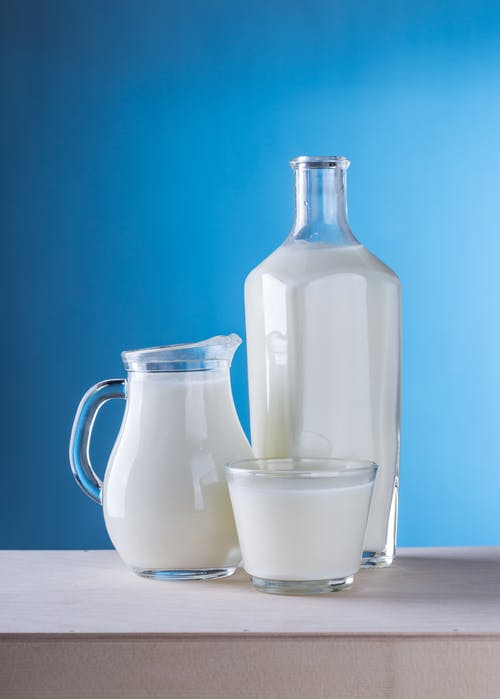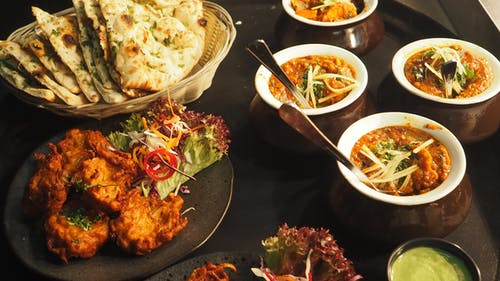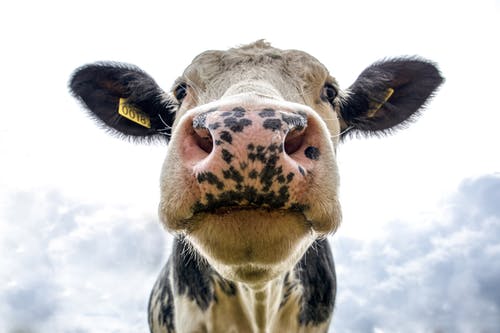Diary products and other animal-based products are lifelines of the ancient Ayurveda diet and lifestyle.

Charak describes milk to be Amrit. Ghee is the best vishaghna or antitoxin. Ayurveda highly recommends an intake of buttermilk, yogurt, and other dairy products for dietary and medicinal use. Another non-plant-based product Honey is the primary Kapha balancing Agent and ghee is THE best remedies for pitta imbalance.
Therefore, the overall concept of vegan seems to be opposite to basic Ayurvedic concepts. However, this is a narrow vision for eternal science. Let’s see what veganism stands for and how Ayurveda is deeply related to veganism.
Read our popular article on Tridosha – 3 Ayurvedic Dosha or Tridosha – Vata, Pitta, and Kapha
What is Veganism in Ayurveda?
There is no doubt that veganism IS healthy. You can safely escape from almost all lifestyle disorders with veganism. Heavy consumption of animal protein is linked to cancer and many autoimmune disorders. It may trigger multiple unhealthy conditions like excess blood cholesterol, triglycerides, atherosclerosis, stroke, diabetes, Obesity, and even cancer.

Esp. regular meat consumption can worsen all kinds of autoimmune disorders. A vegan person incidentally slips away from the clutches of all these disorders. Besides, vegetarian people on average live 3.5 years longer than all meat-eater.
Besides, almost all animal-based products are heavily polluted with genetic modification, unnatural diet, heavy doses of hormones, and antibiotics, whether it be honey or pork. With veganism, you can save yourself from all these toxic animal-based products.
However, veganism is not only about removing meat from your diet. It extends to all animal products including milk, ghee (Indian butter), buttermilk, honey, and so on. Here appears the major split between Ayurveda and veganism.
Vegan vs Vegetarian
A vegetarian person is the one who refrains from animal meat. Most of the Ayurveda followers in India are vegetarians. However, Ayurveda recommends the consumption of animal-based products like Milk, ghee, honey daily. We cannot imagine the life of an Indian child without milk. And that’s why the cow is as good as a mother for us! Besides, all the classical Ayurvedic texts recommend leather-based shoes as an essential part of din charya or Ideal Ayurvedic daily routine.

Ayurveda uses a huge variety of animal products from chicken eggs to peacock feathers for various medicinal purposes. It says that every substance in the universe can be used for some medicinal purposes. With all these facts, Ayurveda and veganism may appear to be completely inverse to each other. But I believe that veganism is more of a philosophy. It extends beyond self-serving and consumerist attitude obsessed only with personal fulfillment. And that’s why veganism stands closer to Ayurveda than vegetarianism.
Fundamentals of Ayurveda
According to the definition of health in Ayurveda Sanskrit as mentioned in Charak Samhita –
Hitahitam sukham dukham
Ayurstasya hitahitam
Manam cha tachcha yatroktam
Ayurveda sa uchchyate
Ayurveda definition of health – Ayurveda is the science that defines the beneficial(righteous) and non-beneficial(evil) life; the comfortable and uncomfortable life; and what is suitable and unsuitable for these lives; and the duration of these lives.
According to Vedas, the ultimate aim of human life is moksha or salvation. A righteous life leads to salvation, whereas a sinful life leads to bondage. For salvation, a person should lead a righteous life, which might or might not be comfortable. Whereas, a sinful life might be very comfortable or even luxurious; but it is far from the aim of Ayurveda and the human life itself.
Therefore, one should focus on leading a “hita” or beneficial life, that might not be comfortable but leads to the ultimate freedom.
Ayurveda is said to be the fifth Veda. And it’s primary aim is to preserve life and enable a person to reach the ultimate human aim. Ayurveda, as an unbiased science, defines all types of lives. However, it strongly patronizes a righteous life.
We Are What We Eat
According to Vedic culture, there are five kosha or deposits that run our lives. The first one is “annamaya kosha” or the deposit of food. The next level is “manomaya kosha” or the deposit of mind (feelings, emotions or prejudices, etc.). The food that we eat frames our annamaya kosha, which in turn affects our manomaya kosha or the mind.

According to Ayurveda, there are three types of people. Likewise, there are types of foods that sustain these people. They are satvik (balanced/righteous), rajasic(hyperactive) and tamasic(dull/ignorant). These people like food that nourishes their mind as well. Therefore, satvik people like sweet, easy to digest food, rajasik people like heavy food, and tamasic people prefer rancid or decaying food.
Non-violence: Essense of Ayurveda
Non-violence is the second most fundamental factor of Patanjali Ashtang yoga. Without observing non-violence, one cannot reach the divine. Let’s see which food substances are fit for a righteous life –
Meat
It is interesting to note that Ayurveda also describes the characteristics of beef, but Vedic culture strongly prohibits its consumption. In fact, in India beef consumption is considered as grave as cannibalism. Let’s us see why –
Meat from animals is not a sustainable food for human beings. Unfortunately, one-third of the international grain production is used as feed for meat-producing animals; when children are dying of malnutrition in some countries.
Besides, beef is the most expensive food in terms of environmental cost, because the beef industry uses a large amount of corn to feed their cows. If all of us were to consume beef, we will need to cut down all the remaining forests on earth and grow corn on that land!
All meat-producing animals are fed a high amount of antibiotics and hormones, as it leads to better weight gain. These antibiotics and hormones are indirectly consumed by meat-eating humans. Heavy indirect doses of antibiotics may lead to drug resistance in the individual. On the other hand, high artificial doses of hormones may induce hormonal imbalance and all linds of related disorders like hyperthyroidism, Obesity, etc.
Also, meat is not satvik or righteous food as it is procured through blood-shed and misery to other living creatures. Now, let’s see whether some of the “vegetarian” animal products are actually non-violent or not.
Diary Products
Heavy demand in dairy industry, and industrialization on dairy products leads cows in the most horrible conditions and fed the most unnatural diet. The milk we receive is from cows that might have never seen green grass. This milk is no more the “Amrit” (elixir) of Ayurveda! It can cause more allergies and diseases than normal food substances.

Milk is a pious food for Hindus, but today milk stands for violence against all milk-producing animals and their young ones. Essentially, the calf has the first right to cow’s milk. But, today humans exploit cows for milk, thereby depriving the calves of their natural nutrition. For this reason, animal milk and all related products are products of cruelty and violence against living creatures. Therefore, they cannot be considered satvik or balanced. There are some dairies over the world who are coming up with satvik type milk products but the numbers are very low. If you still want to consume milk then try to find organic and A2 milk which might be better then normal milk available in the market.
Honey
In todays world honey available is no longer directly from nature. Popularity of Honey has increased in this century and that brought bees bred in unnatural conditions and fed antibiotics to ensure more honey production. Artificial bee rearing practices have led to a syndrome called “colony collapse” – mass destruction of beehives.

The honey available today can be called “blood honey” as it is harvested at the cost of mass destruction of honey bees. It is no longer a sustainable, non-violent vegetarian product. In terms of ethics, eating honey can be as bad as eating meat! If you still want to consume then try to find local and organic honey which might be costly but it’s worth.
If you Consider, all of the above factors, not only meat but all dairy products, honey, etc. are also laced with violence and cruelty towards fellow living creatures and environmental destruction. Hence, they are not in tune with the fundamentals of Ayurveda.
Conclusion
Vedic teachings are soulful. Their interpretations keep changing, depending on the current situation. Milk, honey, and ghee were Ayurvedic elixirs once. However, due to serious health and environmental issues, they create today, all animal products including dairy and honey should be completely avoided. If you cannot avoid completely then try to reduce the intake. People with allergies has shown improvement by reducing milk products.
In light of the above-stated facts, veganism is the true Ayurvedic diet that can help us to reach the far end of human life!

1 comment
[…] Collagen is divided into two that is, vegan collagen and animal derivatives. Therefore, if you are vegan, you should go for vegan […]
Comments are closed.